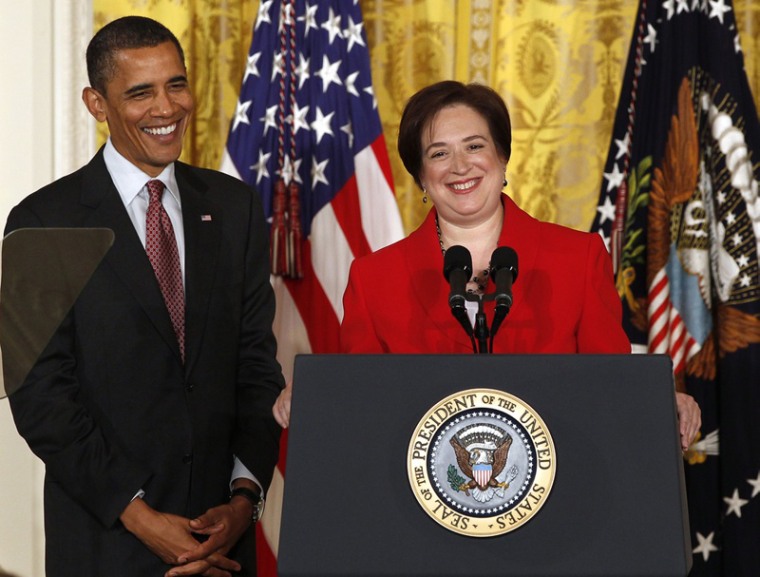President Barack Obama handily won reelection Tuesday and will now have to tackle a number of legislative issues over the next four years. While any president's legislative record is certainly a centerpiece of his legacy, I'd make the case his appointments to the U.S. Supreme Court matter more than anything else.
In the modern era (post-1900), few presidents have been able to make their judicial mark on the country via court appointments more than President Franklin D. Roosevelt. He appointed nine justices, several of whom stand even today as pantheons of the judiciary branch. Take for example Justices Hugo Black and William O. Douglas. Black sat on the bench from 1937-1971 while Douglas outlasted his friend by several more years until his death in 1975. It's safe to say no two justices had more influence on America's collective civil liberties than these two men.
Douglas wrote the prevailing opinion in Griswold v. Connecticut while Black wrote the dissent. Griswold established the oft-debated right to "privacy" that still touches nearly every aspect of our lives today, even in the 21st Century.
President Eisenhower appointed California's Republican Gov. Earl Warren, who turned out to be the greatest advocate of liberal opinions in the court's long history. President Lyndon Johnson nominated the nation's first black justice, Thurgood Marshall, while President Richard Nixon appointed two polar opposites: the conservative Warren Burger and progressive Harry Blackmun. This list goes on and on but the point is clear: long after a president leaves office his Supreme Court justices influence and dictate how we live as a society, and more importantly, keep in check the legislative branch.
In President Obama's first term, he appointed two women to the high court: Justice Sonia Sotomayor and Justice Elena Kagan. In a second term he may now have the opportunity to sit back and wait for the retirement of 76-year-old Justice Antonin Scalia, a conservative. Most court watchers also expect the cagey Justice Anthony Kennedy, also 76, to retire in the next four years. If so, Obama will have the opportunity to turn a 5-4 conservative majority into a 5-4 liberal to moderate majority.
Not since the 1960s has the high court had before it as many civil liberty cases as it does today. The court will rule by June 2013 on gay marriage equality, affirmative action, voting rights, and personhood/abortion. These decisions impact millions of Americans' everyday lives, their privacy, and their right to be "left alone."
Under the current court, it's quite possible for further state restrictions on Roe v. Wade to be handed down and for race to be inadmissible for college qualification. Just this week, four states passed ballot measures affirming marriage equality for gays and lesbians, all of which could be overturned by one opinion coming from the Roberts Court. This is troubling on many levels but even more so now that President Obama and his agenda has been narrowly approved by his re-election.
His winning of a second term provides African-Americans, Latinos, gays and lesbians, and women a collective, and badly-needed, sigh of relief from what would otherwise be a hostile court filled with aging conservatives chomping at the bit to overturn seminal cases like Roe v. Wade, Gideon v. Wainwright, and Lawrence v. Texas. While we have no way of knowing how the court will rule on these important social issues, a retiring justice would make that relief palpable in the very near term.
Obviously elections have consequences. Yet, not in my lifetime have I seen our society's ability to live privately and without prejudice so endangered by the court than today. This isn't something a majority of voters would likely stand for so watch for intense battles in the U.S. Senate over any possible court nominees. It will be a fight worth watching.
